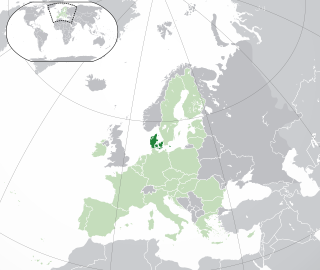In computer networking, peering is a voluntary interconnection of administratively separate Internet networks for the purpose of exchanging traffic between the "down-stream" users of each network. Peering is settlement-free, also known as "bill-and-keep," or "sender keeps all," meaning that neither party pays the other in association with the exchange of traffic; instead, each derives and retains revenue from its own customers.

The Internet backbone may be defined by the principal data routes between large, strategically interconnected computer networks and core routers of the Internet. These data routes are hosted by commercial, government, academic and other high-capacity network centers, as well as the Internet exchange points and network access points, that exchange Internet traffic between the countries, continents, and across the oceans. Internet service providers, often Tier 1 networks, participate in Internet backbone traffic by privately negotiated interconnection agreements, primarily governed by the principle of settlement-free peering.

A Tier 1 network is an Internet Protocol (IP) network that can reach every other network on the Internet solely via settlement-free interconnection. Tier 1 networks can exchange traffic with other Tier 1 networks without paying any fees for the exchange of traffic in either direction. In contrast, some Tier 2 networks and all Tier 3 networks must pay to transmit traffic on other networks.

UUNET, founded in 1987, was one of the largest Internet service providers and one of the early Tier 1 networks. It was based in Northern Virginia and was one of the first commercial Internet service providers. Today, UUNET is an internal brand of Verizon Business.

China Netcom, full name China Netcom Group Corporation Limited, abbreviated CNC, was a former telecommunication service provider in People's Republic of China. It was formed in August 1999 by the Chinese government to enable inward investments to build high speed Internet communications in the country.
Covad Communications Group was an American provider of broadband voice and data communications. By Q3 2006, the company had 530,000 subscribers, and ranked 16th largest ISP in the United States. Covad was acquired by U.S. Venture Partners, who in 2010 announced a 3-way merger of MegaPath, Covad, and Speakeasy, creating a single Managed Services Local Exchange Carrier (MSLEC), providing voice and internet services; the new company was named MegaPath.

PSINet, based in Northern Virginia, was one of the first commercial Internet service providers (ISPs) and was involved in the commercialization of the Internet until the company's bankruptcy in 2001 during the dot-com bubble and acquisition by Cogent Communications in 2002.

HC2 Holdings Inc., formerly known as Primus Telecommunications Group, Inc. (Primus), is a public financial services company. The company was renamed HC2 Holdings, Inc in April 2014 after HRG Group Inc. acquired a 40.5% stake in the company, changing HC2's Stock Market ticker on the NYSE to HCHC. Since January 2014, HC2 has acquired a diverse array of operating subsidiaries, each with its own dedicated management team across a broad range of industries. This includes the acquisition of Schuff Steel, America's largest steel fabricator in the first half of 2014 and Global Marine Systems, a British company specializing in building subsea cable infrastructure in the 3rd quarter of 2014. The company divested all telecommunications interests with the exception of PTGi-ICS.

Cogent Communications is a multinational internet service provider based in the United States. Cogent's primary services consist of Internet access and data transport, offered on a fiber optic, IP data-only network, along with colocation in data centers.

Savvis, formerly SVVS on Nasdaq and formerly known as Savvis Communications Corporation, and, later, Savvis Inc., is a subsidiary of CenturyLink, a company headquartered in Monroe, Louisiana. The company sells managed hosting and colocation services with more than 50 data centers in North America, Europe, and Asia, automated management and provisioning systems, and information technology consulting. Savvis has approximately 2,500 unique business and government customers.

Frontier Communications Corporation is an American telecommunications company. The company previously served primarily rural areas and smaller communities, but now also serves several large metropolitan markets.

Look Communications was a telecommunication company that has been in liquidation from November 2009. It was a digital wireless cable, internet service, and web hosting provider. It was once linked to former crown corporation Teleglobe and Chinese ISP Inter Pacific Online.
Skyriver was a business broadband Internet provider headquartered in San Diego, California. It was acquired by One Ring Networks in July, 2018. Skyriver delivered broadband Internet connectivity for enterprise and small-medium businesses, utilizing its proprietary millimeter wave technology. Skyriver offered commercial grade services including dedicated Internet access, Virtual Private Network (VPN), redundancy, and temporary Internet/event bandwidth in California.

In an international context Denmark is viewed as a somewhat peculiar country when it comes to internet access. The former state owned telephone company TDC owns the entire last mile infrastructure in terms of copper telephone lines and the vast majority of the coaxial cable infrastructure as well. Even though the Danish telecommunications infrastructure is very heavily dominated by one company, Danish internet customers still enjoy fair prices and a wide availability of different next generation access internet connections in comparison with most other EU countries. Furthermore, TDCs de facto monopoly on last mile infrastructure has come under attack. In the last decade regional power companies have formed national business alliances aimed at implementing FTTH for private and business end users.
FUNET was created in 1984 to link Finnish universities. The .fi top-level domain was registered 1986. FICIX was created in 1993 to interconnect Finnish IP networks and commercial sales of Internet connection began.
The Internet in Zimbabwe has seen rapid expansion in recent years. The Internet country code top-level domain is .zw. In 2009, the Mugabe-Tsvangirai Government of National Unity established a Ministry of Information and Communications Technology to focus on ICT growth and development.

iPrimus is an Australian telecommunications company and wholly owned subsidiary of Vocus Communications.
Highway 1 was an Internet Service Provider (ISPs) in Australia., established in 1994. In 2012, following the acquisition and integration of Global Dial, Highway 1 was renamed to ZettaNet Pty Ltd.
EarthLink is an American Internet service provider.

GTT Communications, Inc. (GTT), formerly Global Telecom and Technology, is a multinational telecommunications and internet service provider company with headquarters in Tysons, Virginia, and incorporated in Delaware. GTT operates a Tier 1 IP network, and provides transport and infrastructure; Internet; wide area networking, SD-WAN; managed services; and voice and video services.













